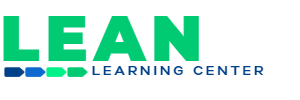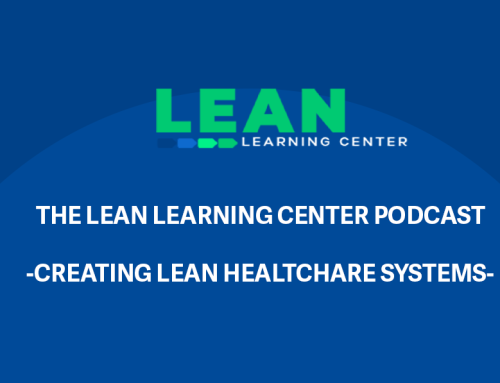Key Takeaways
- Understanding the foundations of lean principles in healthcare data management and their role in enhancing patient care.
- Lean principles aim to minimize waste and streamline data collection, storage, and analysis in healthcare settings.
- Implementation of lean principles can pose challenges, including staff training needs, risk of oversimplification, and resistance to change.
- Strategies can be implemented to overcome resistance to lean methodologies, fostering a culture of continuous improvement in healthcare data management.
The healthcare data landscape is evolving rapidly, with an increasing need for efficient and effective data management strategies. One such strategy is the application of lean principles, a set of methodologies initially developed in the manufacturing sector, now being applied within healthcare data management. These principles aim to reduce waste, streamline processes, and foster continuous improvement, ultimately enhancing patient care. However, implementing these principles in a healthcare setting can pose challenges, including the need for comprehensive staff training, the risk of oversimplification of complex processes, and potential resistance to change. This article will delve into the foundations of lean principles in healthcare data management, their benefits, challenges, and strategies to overcome these hurdles.
Foundations of Lean Principles in Healthcare Data Management
At its core, lean principles in healthcare data management focus on the elimination of waste and the continuous improvement of data processes to enhance patient care. This waste reduction is achieved through streamlining data collection, storage, and analysis, leading to more efficient use of resources and improved patient outcomes. Lean methodologies can be applied to data management in healthcare, allowing for more efficient use and analysis of data.
Moreover, lean principles place a high emphasis on simplicity and continuous improvement in healthcare data management. By breaking down complex data processes and committing to ongoing enhancements, healthcare providers can develop more effective and efficient patient care strategies. A continuous improvement mindset fosters an environment where every process is viewed as a candidate for further refinement and optimization.
However, implementing lean principles in healthcare data management is not without challenges. These can include the need for comprehensive staff training, the risk of oversimplifying complex data, and resistance to change within organizations. It’s important to recognize these potential obstacles early on and devise strategies to address them.
Overcoming resistance to lean methodologies in healthcare data management involves fostering a culture of continuous improvement. This can include engaging staff in lean training programs, demonstrating the tangible benefits of lean principles in improving patient care, and creating an environment where change is embraced rather than resisted. By effectively managing these challenges, healthcare organizations can unlock the full potential of lean principles in healthcare data management, driving significant improvements in patient care and operational efficiency.
Enhancing Patient Care through Lean Data Management
Implementing Predictive Analytics for Proactive Patient Care
As part of managing healthcare data with lean principles, predictive analytics plays a critical role. This approach uses historical data to predict future events, enabling healthcare providers to anticipate patient needs and outcomes. With lean methodologies, predictive analytics becomes even more efficient, leading to personalized and timely care. It’s all about being proactive rather than reactive—anticipating potential health issues before they become critical, thus enhancing the overall quality of patient care.
Streamlining Patient Data Flow to Improve Care Delivery
Another significant aspect of managing healthcare data with lean principles is the streamlining of patient data flow. Lean methodologies advocate for the detailed mapping of patient data flow across various touchpoints in the healthcare system. This process allows for the identification of bottlenecks where data could be delayed or lost. By addressing these issues and applying lean strategies, healthcare providers can enhance data fluidity and accessibility, ultimately improving care delivery and ensuring that critical patient information is available when and where it’s needed.
Leveraging Lean Methodologies for Regulatory Compliance and Data Security
Healthcare providers are often faced with stringent data regulations that ensure the privacy and security of patient information. Here, lean principles come into play again, allowing healthcare providers to meet these regulatory requirements more efficiently. By streamlining processes and eliminating waste, organizations can ensure the highest standards of data privacy and security, while also reducing the time and resources spent on compliance activities. In the complex and highly regulated world of healthcare data management, lean methodologies serve as a valuable tool for maintaining regulatory compliance without compromising efficiency.
Fostering a Culture of Continuous Improvement in Data Management
Perhaps one of the most significant aspects of lean principles in healthcare data management is the cultivation of a culture of continuous improvement. This involves engaging all levels of healthcare staff in lean training and initiatives. It’s not just about implementing lean methodologies—it’s about embedding them in the very fabric of the organization’s culture. By fostering this culture, healthcare providers can ensure a shared commitment to enhancing patient care through improved data management. This commitment leads to ongoing enhancements in the way data is collected, stored, analyzed, and utilized, ultimately resulting in better patient care and outcomes.
Measuring Success and Sustaining Lean Data Management Practices
Establishing Key Performance Indicators for Lean Data Management
In the realm of managing healthcare data with lean principles, it’s essential to have a means of measuring success. Key Performance Indicators (KPIs) serve this purpose, providing specific and measurable goals related to waste reduction, efficiency improvements, and enhancements in patient care. By closely monitoring these KPIs, healthcare organizations can track the success of their lean initiatives, making necessary adjustments and celebrating progress along the way.
Utilizing Feedback Loops for Continuous Data Management Optimization
Feedback loops are an integral part of lean methodologies. In the context of healthcare data management, feedback from both healthcare professionals and patients can inform ongoing improvements in data management practices. This iterative process of feedback and improvement ensures that the data management system remains responsive to the changing needs of its users, facilitating continuous optimization of processes and overall service delivery.
Embracing Technology and Innovation in Sustaining Lean Practices
Technology and innovation play a key role in supporting and advancing lean data management efforts. Emerging technologies such as artificial intelligence and machine learning can automate data analysis, predict trends, and identify areas for improvement more efficiently. By embracing these technologies, healthcare organizations can further enhance the efficiency of their data management practices, aligning with the lean principle of continuous improvement and waste reduction.
Highlighting the Long-term Benefits of Lean Data Management for Healthcare Organizations
Finally, it’s crucial to reflect on the long-term benefits of managing healthcare data with lean principles. Sustained lean practices contribute to improved patient outcomes, operational efficiencies, and healthcare innovation. By continually improving processes, reducing waste, and focusing on value, lean data management can transform healthcare delivery, leading to better outcomes for patients and greater efficiencies for healthcare organizations.
Managing healthcare data with lean principles offers a pathway to more efficient, effective, and patient-centered healthcare delivery. By implementing lean methodologies, healthcare organizations can enhance their data management practices, resulting in improved patient care and operational efficiencies. But the journey doesn’t end here. How will you incorporate lean principles into your healthcare data management practices? What steps will you take to foster a culture of continuous improvement in your organization?
Discover how our lean solutions can elevate your operations. Contact us for a free consultation!




